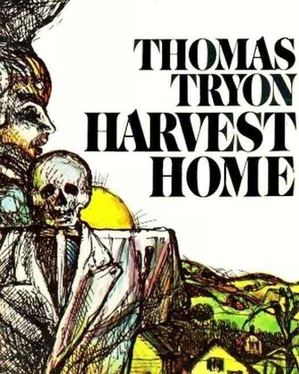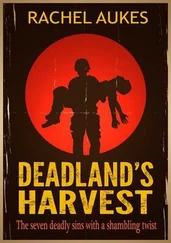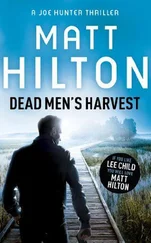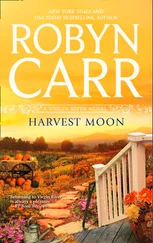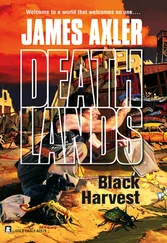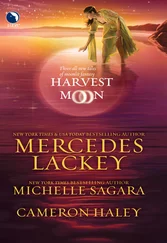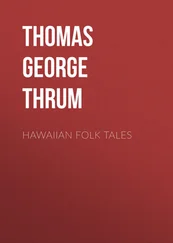Thomas Tryon - Harvest Home
Здесь есть возможность читать онлайн «Thomas Tryon - Harvest Home» весь текст электронной книги совершенно бесплатно (целиком полную версию без сокращений). В некоторых случаях можно слушать аудио, скачать через торрент в формате fb2 и присутствует краткое содержание. Жанр: Ужасы и Мистика, на английском языке. Описание произведения, (предисловие) а так же отзывы посетителей доступны на портале библиотеки ЛибКат.
- Название:Harvest Home
- Автор:
- Жанр:
- Год:неизвестен
- ISBN:нет данных
- Рейтинг книги:5 / 5. Голосов: 1
-
Избранное:Добавить в избранное
- Отзывы:
-
Ваша оценка:
- 100
- 1
- 2
- 3
- 4
- 5
Harvest Home: краткое содержание, описание и аннотация
Предлагаем к чтению аннотацию, описание, краткое содержание или предисловие (зависит от того, что написал сам автор книги «Harvest Home»). Если вы не нашли необходимую информацию о книге — напишите в комментариях, мы постараемся отыскать её.
For Ned and his family, Cornwall Coombe was to be come a place of ultimate horror.
Harvest Home — читать онлайн бесплатно полную книгу (весь текст) целиком
Ниже представлен текст книги, разбитый по страницам. Система сохранения места последней прочитанной страницы, позволяет с удобством читать онлайн бесплатно книгу «Harvest Home», без необходимости каждый раз заново искать на чём Вы остановились. Поставьте закладку, и сможете в любой момент перейти на страницу, на которой закончили чтение.
Интервал:
Закладка:
Skirts hiked up, her bare legs showing, the postmistress was sitting on a porch glider, braiding her little girl’s hair. The child eluded her and, carrying a ragged-looking doll, came down the walk to the picket gate and watched us pass. Framed by the red braids, her elf’s face was milky pale, pinched, and drawn-looking, and her large, washed-out eyes contemplated us with the dull-witted, curiously vague expression that can come of closely bred bloodlines.
“Horsy, Missy.” Slowing the buggy, the Widow jounced on the seat, making a to-do of the mare, causing it to bob its head and jingle its harness. The child made no reply, but only continued gazing at us. “Goin’ to pick a good sheep today, Missy? There’s a girl.” The old woman’s voice was friendly and hearty, and she gave a little nod of satisfaction. I had the sensation the child was staring not at her or at the horse but at me, and I felt unaccountably ill at ease as I looked back at the pale milky face, with its spate of reddish freckles over the bridge of the nose.
Her mother called from the porch, “Missy, come make poopoo.” Before obeying, the child turned, still clutching the ragged doll; again I felt the same odd sensation that the look was in some significant way directed toward me. As we passed on, I casually inquired of the Widow if it was true that Missy Penrose could tell the future. The old lady gave another nod; Missy had strange powers, of that there was no doubt. It was the freckles, she said, two dozen of them, rather in the shapes of the constellation Orion, with its two great stars, Betelgeuse and Rigel. These markings were the stars of her face, a kind of cosmos printed there, and as men might read the mysteries of those stars, so it had been given to the child to read other mysteries.
I continued thinking of the star-speckled face and the deep nature of Missy Penrose, and we rode in silence to the end of Main Street, where the Common lay before us, dotted with tall, spreading trees, the church steeple gleaming in the bright morning light. There was the bell in the tower, the great face of the clock below, and beside the open vestibule doors, old Amys Penrose, the bell ringer, dozing in a chair. On the Common, the green of the grass and leaves was intensified by the clarity of the clean blue sky and the white canvas of the booths and tents that had been set up for the Agnes Fair, with gay pennants fluttering from their peaks. All seemed in readiness for the day’s events: livestock enclosures had been put up, chairs and long tables had been set out for people to eat at, and three tall shafts had been dug into the ground for the shinnying contest.
The idly grazing sheep baaed as we stopped at the churchyard, where the Widow made her way to her husband’s grave and arranged her fresh flowers, then stood silently with head bowed.
I walked to the top of the knoll and looked down the backward slope to where the churchyard ended, bounded by the iron railing. Beyond it was the untended plot, with its marker almost obliterated by weeds and growth. Again I wondered about Grace Everdeen, whose remains lay under the forlorn tombstone, and why she had been forbidden the company of the other village dead.
I turned back.
Head still bent, the Widow was speaking: “Well, Clem, things are lookin’ fine for fair day. Now all we can hope for is the right choosin’.” She angled her head as though awaiting reply. I moved away, affording her a larger measure of privacy for this genial dialogue between the quick and the dead, which for some reason seemed to me a perfectly natural thing.
At length she broke off, raised her head, and, catching my eye, smiled. She came toward me, stopping at one point to look down at another headstone.
“Well, Loren, well,” she murmured, stooping to pinch off a flower whose stem was broken. “Loren’s gone, too, and that’s in the manner of things. The Lord giveth, the Lord taketh.”
I looked down at the stone.
The inscription read:
Loren McCutcheon
Who Hoped but Failed
Age 28
“How did he die?” I asked.
“Of drink.”
“At twenty-eight?”
“‘Twa’n’t the drink so much-but the fall he took while drinkin’. Slipped off the barn in the night.”
I was about to ask what misfortunes had caused the unknown Grace Everdeen’s exile, but the Widow, giving short shrift to the dear departed, lifted her skirts and marched from the cemetery, shears swinging on their ribbon.
The street was quiet and deserted, except for the postmistress, who came along the sidewalk on the far side, leading her daughter, Missy, by the hand. When she got to the post office, she turned the child toward the grazing sheep, gave her a pat on the bottom, and sent her off, then unlocked the post-office door and went inside. The child ambled across the roadway and onto the Common, where she slowly made her way among the flock.
Meanwhile the Widow, hands planted on hips, was surveying the old bell ringer, still dozing in the sunshine.
“He’s a codger, Amys.” She chuckled and accepted my hand as I assisted her into her seat. “Forty years our sexton and still he don’t hold with Agnes Fair. Nor much of anything, if it comes to that.” She clucked up the mare and the buggy rolled onto the roadway. “Good Missy,” she called to the child, who did not look up but only stared at the sheep as they moved around her, their bells making a pleasant tinkling sound. The Widow snapped the reins on the mare’s flanks, a swarm of flies arose, and the horse stepped out at a smart pace, back the way we had come, heading out the country end of Main Street.
5
“How’d you come by that wart there?”
She had handed me the reins and now she brought my hand closer to her spectacles to examine the growth on my finger. I explained about the pressure from my brushes, and said I’d been meaning to see a doctor about it.
“Ha! You do that. Old Doc Bonfils over to Saxony. Maybe he’ll rid you of it-maybe he won’t. What you need is a little red bag-that’ll take care of your wart, and then some.”
“Little red bag?”
She laid her finger alongside her nose and closed one eyelid. “What we call the Cornwall cure. We’ll see to it,” she added mysteriously, giving me back my hand.
We were proceeding along the winding road, called the Old Sallow Road, which leads to Soakes’s Lonesome and the Lost Whistle Bridge. In the east the sun rose higher in a sky already pure cerulean. The corn grew tall on either side of the road, and when I commented that the year promised a good crop, the Widow agreed.
“I knew t’would be. I been listenin’ all summer to the corn a-growin’. Oh yes sir, you can hear it all right. You come out with me one night next year-don’t smile, I’m not talkin’ about country matters-and you’ll hear it too. The softest rustle of leaf, soft as fairies’ wings, and you know them stalks is stretchin’ up to the sky, the tassels is length’nin’, the ears is bit by bit gettin’ fatter, till you can hear their husks pop. That’s somethin’, on a hot dark night, standin’ by a cornpatch in the light o’ the Mulberry Moon, and hearin’ the corn grow. Then you can say the earth has returned the seed ten thousandfold.”
She pointed upward. “See that blue sky now, that’s God’s sky. And up there in that vasty blue is God. But see how far away He is. See how far the sky. And look here, at the earth, see how close, how abiding and faithful it is. See this little valley of ours, see the bountiful harvest we’re to have. God’s fine, but it’s old Mother Earth that’s the friend to man.”
And corn was king. Foolish folk, she continued, on a cold night might insist on burning their cobs in the fire. Burn corn? Never. Return the corn to the earth, bury it, then, when the plowman turned the furrow in the spring, the tilth would come up rich and dark against the shear, a fertile soil willing to bear generously for whatever hand was put to the harrow. Love the earth and it must love you back.
Читать дальшеИнтервал:
Закладка:
Похожие книги на «Harvest Home»
Представляем Вашему вниманию похожие книги на «Harvest Home» списком для выбора. Мы отобрали схожую по названию и смыслу литературу в надежде предоставить читателям больше вариантов отыскать новые, интересные, ещё непрочитанные произведения.
Обсуждение, отзывы о книге «Harvest Home» и просто собственные мнения читателей. Оставьте ваши комментарии, напишите, что Вы думаете о произведении, его смысле или главных героях. Укажите что конкретно понравилось, а что нет, и почему Вы так считаете.
